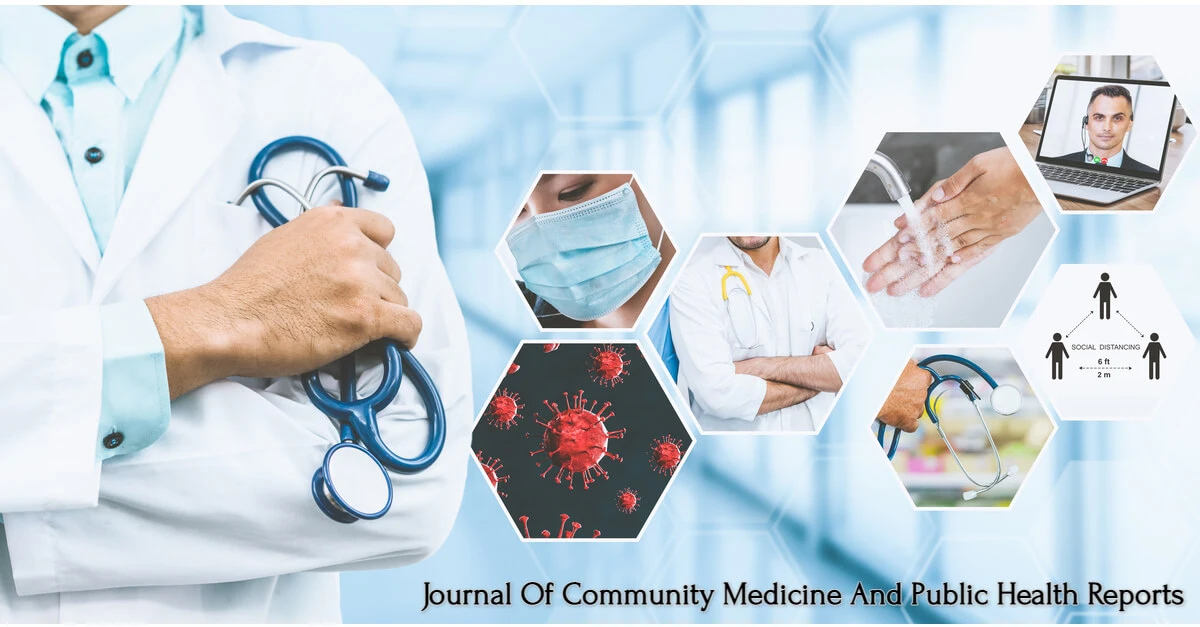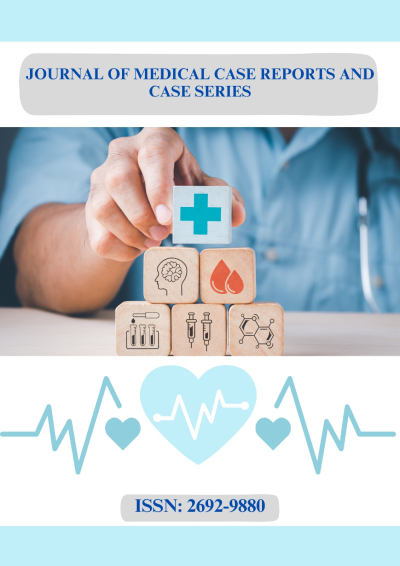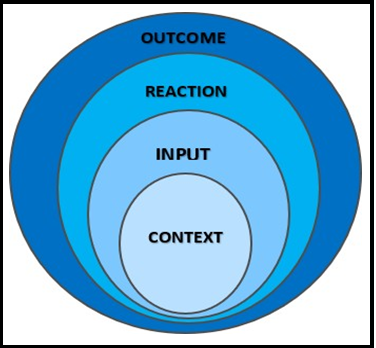Valarmathi S1*, Sivaranjani E 2, Jasmine S Sundar3, Srinivas G4, Kalpana S5, Arul paul6, Punitha K7, Raj kumar8
Department of Epidemiology, The Tamil Nadu Dr. M.G.R Medical University, Guindy Chennai.
*Corresponding Author: Valarmathi S, Department of Epidemiology, The Tamil Nadu Dr. M.G.R Medical University, Guindy Chennai.
Abstract
Aims & Background:
In the era of evidence based medicine, research is an essential part of medical profession whether clinical or academic. Learning research methods through short-term courses is becoming essential among health professionals to perform quality research to generate evidence in health sciences. The aim of our study was to evaluate the research methodology workshop conducted for postgraduate students by assessing the participant's knowledge, feedback, and expected impact.
Materials and Methods:
A Descriptive study was conducted among postgraduate students from medical colleges in Tamil Nadu. The four levels of the CIRO model were applied for evaluation. Context, a module of the workshop, feedback forms, follow-up test scores of each session, and scores of pre-test and post-test were the components used to evaluate the four levels of the CIRO model.
Results:
Among 5540 postgraduate students 96% of participants, scored above 50% in follow-up test at the end of each session. The mean ± SD of pre- test and post-test scores were 9.37± 2.63 and 15.81± 2.94 respectively. The differences were found to be significant using the Paired Sample T- test (P <0.001).
Conclusion:
There was an increase in knowledge of the delegates after attending research methodology workshops. The workshop effectively addressed the learner's needs, helping them to become more competent and confident.
Keywords: Research methodology, CIRO model, Pre-test, Post-test.
Introduction
In this era of evidence-based medicine, only systematic research can help in providing judicious and precise healthcare to individual patients based on updated knowledge and skills.[1,2] The National Medical Council (NMC) has also stressed the need for formal training in research methodology for healthcare professionals. The systematic procedure followed by a medical professional through research work is known as research methodology. [3] To develop new techniques in the field of medical science for patient management and care, research is required, and to keep the knowledge up-to-date, training is required.
[4] In spite of having a keen interest in research, to conduct a research study, it is essential to possess adequate knowledge of research methods, practical skills, and ethical principles, which leads to the development of the right attitude. [5] Research in biomedical field plays a vital part in learning, development and innovation on a focussed discipline and also help in its advancement. In today's biomedical sciences, the understanding of the quality of any of these disciplines is solely based on peer-reviewed publications that constitute evidence-based medicine. This emphasizes the importance of research in their respective field which helps to evolve and pave way not only for enhancing post-graduate education but also for partaking in innovative discoveries. Thus, the need for augmenting the knowledge and skills probes the need for cutting-edge research among all medical, surgical and dental professionals. To improve the teachings in medical education and to engage the faculty and students in research activity, it is compulsory to submit a "thesis" for postgraduate (Masters – MD/MS/DNB) courses which incorporate training in doing research along with appraisal of research methodology and critical analysis. [6]
The objective of research methodology workshops is helpful not only for novice researchers, with minimum or no prior research experience, to formulate a research question but also for those conducting real-time research. [7] Evaluating the effectiveness and efficiency of such workshops is crucial to determine whether the desired objectives have been fulfilled with a successful outcome. [8] There are many evaluation models for the evaluation of academic workshops. One such model is the CIRO model. This model consists of four evaluation levels which are interdependent, Shown in figure 1. The model evaluates the educational process and the outcomes of the workshops [9]. Research methodology workshop not only evaluates the learning outcomes but also provides further insights into the desired modifications necessary for improving the quality and effectiveness of the workshops. The objective of our study was to evaluate a research methodology workshop conducted for postgraduate students by assessing the participant's knowledge, feedback, and expected impact using the CIRO evaluation model.
Materials and Methods
A Descriptive study was conducted among postgraduate students from medical colleges in Tamil Nadu via online platform from 2022 – 2023. The duration of research methodology workshop was 3 days. The CIRO model was used to assess the workshop. This model has been previously validated as an evaluation tool for educational and academic interventions. The four levels included context, input, reaction, outcome.
Figure 1: CIRO Model
CIRO Model
CIRO: Context
A series of online workshops on 'Research methodology and Biostatistics were conducted between 2022-2023. The workshop aimed to empower post-graduate students and healthcare professionals with research skills, assist dissertation and thesis work, and to promote evidence-based practices. Healthcare research has advanced immensely, playing an imperative part in enhancing global healthcare. The workshop focused on research methodology, biostatistics and data analysis in order motivate rigorous healthcare research.
CIRO: Input
Participants gained an in-depth exposure to the fundamentals of healthcare research. The fundamental concepts of data analysis, as well as other important components of biostatistical approaches, were discussed. Lectures and practical demonstrations were given by the external and internal faculties (Table 1). Group discussions were held on the topics like formation of research questions, selecting the appropriate design and statistical test, conducting literature searches, and organizing the literature.
Table 1: Day 1 – 3 Module
|
Day 1 |
Day 2 |
Day 3 |
|
Research ideas and research question |
Diagnostic study |
Statistical tests |
|
Searching and organizing literature |
Qualitative research |
Bias |
|
Selecting an appropriate research design |
Sampling technique and sample size |
Critical appraisal |
|
Questionnaire development |
Writing a research protocol |
Ethics in health research |
|
Basics statistics in health research |
Data collection and management |
Publication of research article |
At the end of each day of the workshop, participants evaluated the course content's significance and efficacy, as well as how it coincided with their objectives and expectations. The main evaluation criteria were:
1. Course content
2. Resource personnel's expertise
3. Learning environment
Feedback questionnaires were distributed via mail and respondents were kept confidential. The questionnaires were evaluated using a scale of 1 (very poor) to 5 (excellent).
CIRO: Outcome
Five to six topics were covered each day, and at the end of each session, a follow-up test was conducted. Pre and post-test were administered for evaluating the effectiveness of workshop. The questionnaire consists of 25 questions, every correct answer was given one mark. Pre and post-test scores were evaluated and mean differences were tested for significance.
Results
A total of 5540 postgraduate students from 40 medical colleges participated in the online workshop. The effectiveness of workshop was evaluated using CIRO model. Following each session, participants received a follow-up test. 96% of participants, out of 5540, scored above 50%. The learning gained from the workshop, as assessed through mean scores showed up that delegates have gained intense knowledge in the topics of Research ideas and research question, Searching and organizing literature, Questionnaire development respectively. The results are shown in the Table 2.
Before starting the scientific sessions on day-1, each participant's existing knowledge on research methods was assessed by pre-test (N=5400) and at the end of workshop post-test (N=4598) was conducted. The pre and post-test scores of the participants who attended the workshop showed significant (P<0.05) mean difference (Table 3) using paired sample t test (N=3770).
Approximately 4598 (83%) out of 5540 participants in the workshop responded for feedback. The overall median score of these evaluations was 4, contributed by 4506 (98%) of the participants. The participants felt all the sessions were brief and understandable and they got an thorough understanding of the thesis and its publication.
Table 2: Mean Percentage scores of the Sessions
|
Title |
Mean (%) |
Standard deviation |
95% Confidence Interval |
|
DAY 1 |
|||
|
Research ideas and research question |
80.36 |
8.35 |
71% - 87% |
|
Searching and organizing literature |
79.20 |
10.74 |
70% - 86% |
|
Selecting an appropriate research design |
76.11 |
7.13 |
66% - 83% |
|
Questionnaire development |
90.91 |
8.36 |
82% - 95% |
|
Basics statistics in health research |
70.91 |
10.59 |
61% - 79% |
|
DAY 2 |
|||
|
Diagnostic study |
78.01 |
5.50 |
68% - 85% |
|
Qualitative research |
71.55 |
10.55 |
63% - 80% |
|
Sampling technique and sample size |
74.39 |
10.99 |
65% - 82% |
|
Writing a research protocol |
78.40 |
10.27 |
69% - 85% |
|
Data collection and management |
68.76 |
12.00 |
58% - 76% |
|
DAY 3 |
|||
|
Statistical tests |
71.57 |
14.39 |
61% - 79% |
|
Bias |
69.30 |
9.06 |
59% -77% |
|
Critical appraisal |
66.86 |
6.32 |
56% - 74% |
|
Ethics in health research |
77.58 |
7.52 |
67% - 84% |
|
Publication of research article |
71.00 |
10.92 |
61% - 78% |
|
Writing a dissertation and university guidelines |
68.45 |
7.97 |
59% - 77% |
Table 3: Mean score of pre-test and post-test
|
Pre-test |
Post-test |
P value |
||
|
Mean |
Standard deviation |
Mean |
Standard deviation |
0.001 |
|
9.37 |
2.638 |
15.81 |
2.948 |
|
Discussion
When we compare the quality of medical research in India to the rest of the globe, we lack in quality research. The reason for this lack could be numerous, lack of funding, workforce, resources including lack of research focus in medical education. [10] Quality research articles published in India made up 1.5%. [11] Trainings and workshops are the finest ways to promote the concept of research as they are well received and improve the knowledge and performance of medical personnel. When compared to workshops held at other institutions, our workshop stands out because our workshop was undertaken in the university premises and also online platform where participants from all part of the states were invited. Assessing the participants' satisfaction through a Likert scale rating provides guidance toward improving the quality and objectives of future workshops. Majority of participants stated that the workshop content and quality of the session as key strengths. The overall median score of feedback was 4, contributed by 4506 (98%) of the participants. Other studies have also reported a high level of satisfaction. [12] Following each session, participants received a follow-up test. 96% of participants, out of 5540, scored above 50%. There was a significant improvement in the participants knowledge (p<0.001), as showed by the 25.76 % increase in post-test score. Several other studies also reported similar findings in the improvement of knowledge between pre- and post-workshop test scores. [13] Similar studies have concluded an increase in the level of knowledge among the medical students after attending these research methodology workshops or after attending a comparable short-term research training. [14]
Limitation
A few restrictions on the study included the workshops' short duration. Additionally, using online mode did not provide the chance for hands-on training. Further, it will be carried out with a control group as a larger scale.
Conclusion
Participants in the research methodology session showed improvements in their performance and level of knowledge. The workshop effectively addressed the learner's needs, helping them to become more competent and confident. Through online platforms, these periodic workshops have proven to be beneficial in advancing pertinent research priorities, assisting in the selection of suitable research design and enhancing the initial planning of appropriate analysis.
References
- Sackett DL, Rosenberg WM, Gray JA, Haynes RB, Richardson WS (1996) Evidence based medicine: what it is and what it isn’t. BMJ. 312(7023): 71–2.
- Swanson JA, Schmitz D, Chung KC (2010) How to practice evidence-based medicine. Plast Reconstr Surg. 126(1): 286–94.
- Research Methodology.
- Shrivastava M, Shah N, Navaid S (2018) Assessment of change in knowledge about research methods among delegates attending research methodology workshop. Perspectives in Clinical Research. 9(2): 83-90.
- Jadhav M, Bhatt A (2013) Ethics in clinical research in India: A survey of clinical research professionals’ perceptions. Perspectives in Clinical Research. 4(1): 4-8.
- Aggarwal R, Gogtay NJ, Kumar R, Sahni P (2016) The revised guidelines of the Medical Council of India for academic promotions: Need for a rethink. J Postgrad Med. 20(1):1–4.
- Johal S (2012) Assessing the impact of workshops promoting concepts of psychosocial support for emergency events. PLoS Curr. 4: e4fd80324dd362.
- Musal B, Taskiran C, Gursel Y, Ozan S, Timbil S, et al. (2008) An example of program evaluation project in undergraduate medical education. Educ Health (Abingdon). 21(1): 113.
- Ali S, Tufail M, Qazi D (2022) Training Evaluation Models: Comparative Analysis. Research Journal of Social Sciences and Economics Review. 3(4): 51–63.
- ICRIER - Think Tank | Indian Council for Research on International Economic Relations (ICRIER).
- Ananthakrishnan N (2011) Medical research output in India: where are we? Natl Med J India. 24(3): 189.
- Nel D, Burman RJ, Hoffman R, Randera-Rees S (2013) The attitudes of medical students to research. S Afr Med J. 104(1): 33– 6.
- Uttam Kumar P, Ranabir P, Kunja Lal T (2021) Feedback of Postgraduate Students about Workshop on Making an Effective Research Paper. Journal of Primary Care Specialties. 2(3): 63-6.
- Kumar D, Singh US, Solanki R (2015) Assessment of a Group Activity Based Educational Method to Teach Research Methodology to Undergraduate Medical Students of a Rural Medical College in Gujarat, India. J Clin Diagn Res. 9(7): LC01- 03.




